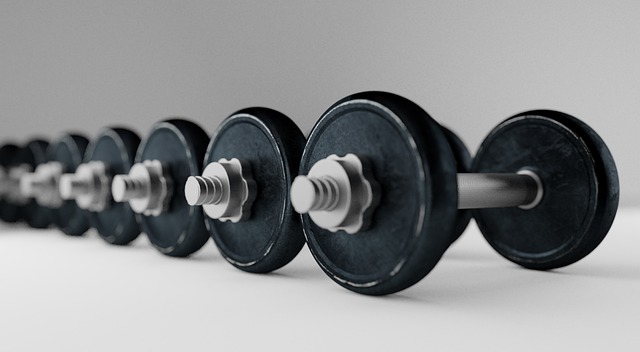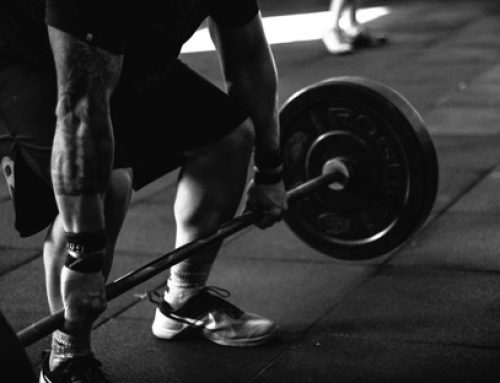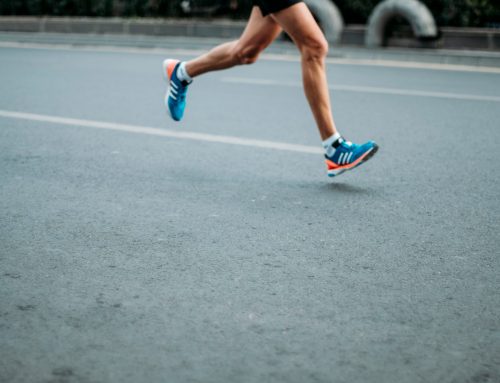Do you ever feel like you’re carrying around a little too much extra baggage, and not the kind you can just check at the airport? Have no fear, because fasting and pumping may be the answer to your bloated prayers! That’s right, folks. We’re talking about weight lifting on an empty stomach, and the benefits that come with it. So, put down the breakfast burrito and get ready to flex those muscles with a side of humor, because this article is going to be a real gut buster.
Contents
- 1 1. Introduction: Understanding the Benefits of Fasting and Weightlifting
- 2 2. How Fasting Impacts Your Body During Weightlifting
- 3 3. The Science Behind the Benefits of Working Out on an Empty Stomach
- 4 4. Common Misconceptions About Fasting and Weightlifting
- 5 5. Tips and Precautions for Safe and Effective Fasted Workouts
- 6 In conclusion, get hangry and lift heavy
1. Introduction: Understanding the Benefits of Fasting and Weightlifting
So, you want to know about the benefits of fasting and weightlifting? Well, buckle up, buttercup, because this is going to be a wild ride. First things first, let’s talk about fasting. No, not the kind where you forget to eat because you binge-watched Netflix for 12 hours straight. We’re talking about intentional fasting – going without food for a set period of time.
Now, I know what you’re thinking – “But won’t I be hangry?” Honestly, probably. But hear me out. Fasting has a whole host of benefits. It can improve insulin sensitivity, which can help with weight loss and diabetes prevention. It can also boost your metabolism and increase your body’s production of human growth hormone. And the best part? You can eat whatever you want during your feeding window. Yes, you heard that right. Want to chow down on a bag of chips and a pint of ice cream at 11pm? Go for it, champ.
Now, let’s move on to weightlifting. Not to be confused with weightlisting, which is a term I just made up but sounds like it could be a real thing. Weightlifting is a great way to build muscle, increase bone density, and improve overall strength. Plus, you get to feel like an absolute badass when you’re deadlifting more than your body weight. And don’t worry, you don’t have to turn into a bodybuilder to reap the benefits of weightlifting. Just a few simple exercises a few times a week can make a big difference. So go ahead, pick up those dumbbells and start pumping some iron (or steel, or whatever those things are made of).

2. How Fasting Impacts Your Body During Weightlifting
So, you’ve decided to take your weightlifting game to the next level and incorporate fasting into your routine. Well, hold on to your barbells, because things are about to get interesting.
First off, let’s talk about the obvious: you’re not fueling your body with food before a workout, which means you’ll be relying solely on stored energy. This can lead to increased fat burning, as your body turns to its fat reserves for fuel.
- Pro tip: make sure you’re properly hydrated before starting your fasted workout. Dehydration can lead to decreased performance and increased risk of injury.
- Another thing to keep in mind is that fasted workouts can lead to decreased glycogen levels in your muscles. So, if you’re planning on going all out during your weightlifting session, you might want to consider breaking your fast with a carbohydrate-rich meal afterward.
But wait, there’s more! Fasting has also been linked to increased production of human growth hormone (HGH), which is essential for muscle growth and repair. So, while you might feel a bit sluggish at the beginning of your fasted workout, you’ll reap the rewards in the long run.
Overall, incorporating fasting into your weightlifting routine can be a great way to challenge yourself, burn fat, and promote muscle growth. Just make sure to listen to your body and adjust accordingly. And hey, if all else fails, you can always treat yourself to a big ol’ plate of pancakes after your workout. Pancakes are basically carbs and protein, right?
3. The Science Behind the Benefits of Working Out on an Empty Stomach
Let’s dive into the science behind what happens when we choose to hit the gym on an empty stomach. Trust me, it’s more than just avoiding the risk of a burp-filled downward dog during yoga class.
Firstly, exercising on an empty stomach can help with weight loss by increasing the body’s ability to burn fat. When we eat before a workout, our bodies use the glucose from the food as energy instead of tapping into our fat stores. But when we exercise on an empty stomach, the body has no choice but to burn fat for fuel. So, if you’re looking to shed some pounds, skip that breakfast burrito and get moving!
- Another benefit of an empty stomach workout is improved digestion. When we exercise, blood flow is redirected away from our digestive system to deliver oxygen and nutrients to our muscles. If we’ve recently eaten a large meal, this can result in indigestion or cramping. So, save that post-workout smoothie for later and give your body some time to digest before consuming anything else.
- Finally, exercising on an empty stomach can also boost our energy levels and mental clarity. When we eat before a workout, our digestive system is forced to work harder, leaving us feeling sluggish and tired. Without the burden of digestion, we have more energy to focus on the task at hand, whether that’s a weightlifting session or a morning run. So, the next time you’re feeling a bit groggy in the morning, try a quick workout on an empty stomach to help shake off that brain fog.
In conclusion, working out on an empty stomach can be a great way to boost weight loss, improve digestion, and increase energy levels. But, as with any new exercise routine, make sure to listen to your body and adjust accordingly. And hey, at least now you have an excuse to hit snooze on that early morning breakfast alarm!
4. Common Misconceptions About Fasting and Weightlifting
Myths, Misunderstandings, and More: Here’s Why You Should be Skeptical Before Lifting Your First Plate
Before you decide to throw your body through the ringer with intense workouts and no food, here are a few common misconceptions about fasting and weightlifting that are simply not true:
- Fasting will not make you lose muscle mass: Unless you’re surrendering one too many calories in the gym or not eating enough protein, fasting shouldn’t lead to any significant muscle loss.
- You do not gain weight because of a slow metabolism: Contrary to popular belief, if you’re gaining weight when you’re not eating enough, it’s most likely because your portions are too big or your calories are exceeding your caloric needs.
Now, these myths might sound like a load of bull, but it’s important to be an informed weightlifter to avoid any future obstacle in your fitness journey.
- Fasting does not lead to burning more fat: While fasting will help you reduce your caloric intake, which can lead to weight loss, it might not necessarily result in losing more fat. In fact, if you go for intense training during a fasted state, you might end up burning more muscle than fat.
- Eating before exercising is not always a bad thing: While there are advantages to fasted cardio, working out on an empty stomach may not be optimal for all individuals. If you’re struggling to muster the energy for your sets and reps, eating something beforehand would be a good idea.
So, while myths are just that like any other entity in life, understanding the truth about fasting and weightlifting is the key to level up your workout game without losing yourself.
5. Tips and Precautions for Safe and Effective Fasted Workouts
So, you’ve decided to channel your inner superhero and conquer the world with your fasted workouts? Good for you! However, before you start chasing your fitness goals with a lightning-fast metabolism, make sure to follow these tips and precautions for a safe and effective workout:
- Stay Hydrated: Just because you’re fasting, it doesn’t mean you should deprive your body of water. Make sure to drink plenty of H2O before and during your workout to keep yourself hydrated and prevent dehydration.
- Don’t Overdo It: While it might be tempting to push yourself extra hard during a fasted workout, remember that your body needs fuel to perform at its best. Don’t over-exert yourself or risk fainting, dizziness, or worse.
- Break Fast the Right Way: Once you’ve completed your fasted workout, don’t reach for the first junk food that comes your way. Instead, break your fast with a healthy, balanced meal that includes protein, carbs, and healthy fats to help your body recover and replenish properly.
Lastly, remember to always listen to your body and adjust your workout intensity as needed. Fasted workouts can be a great tool to help you reach your fitness goals, but they’re not a magic bullet. Stay safe, stay hydrated, and stay awesome!
In conclusion, get hangry and lift heavy
Well, now you know the secrets to getting swole and starving – okay, okay, not actually starving: fasting. Not only can weight lifting on an empty stomach help you shed some pounds, but it can also make you feel like a badass for pushing through the hunger.
So next time you hit the gym, leave the snacks at home, and embrace the hangriness. Just make sure to refuel with some healthy post-workout eats or risk becoming a ravenous beast let loose on the world. Happy lifting, hungry friends!








Leave A Comment